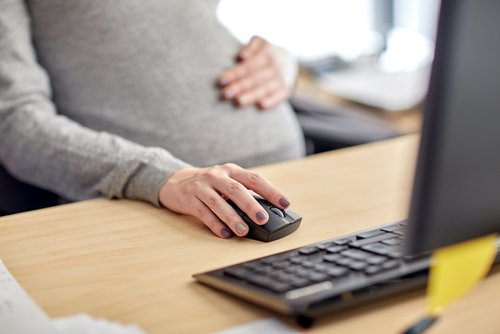Pregnancy and work – what you need to know as an employer
Pregnancy and maternity discrimination
All employees who are pregnant, including casual workers or agency workers, have protection from pregnancy discrimination from the first day of their employment. This protection also extends to recruitment decisions before any employment has commenced.
There has been an increase of maternity & pregnancy discrimination claims in the Employment Tribunal and the majority of these claims have been won by pregnant employees or employees on maternity leave.
Businesses have a series of legal obligations to comply with when they know, believe or suspect that an employee is pregnant. A summary of the legal position is provided below.
The legal position
It is unlawful for businesses to treat pregnant and employees on maternity leave unfavourably because of their pregnancy during what is known as the protected period. The protected period starts when the pregnancy begins and usually ends when the maternity leave period comes to an end or the employee returns to work.
Therefore, any business decisions that are detrimental to a pregnant employee because they are pregnant, for a reason related to pregnancy or because of illness related to pregnancy is likely to be unlawful discrimination. In addition, it is also unlawful to treat a pregnant employee unfavourably because she is taking or has chosen to take maternity leave.
Examples of unlawful discrimination
Pregnancy and maternity discrimination can take many forms and a Tribunal will consider all facts of the matter to establish if there has been discrimination. However, a list of the most common types of pregnancy and maternity discrimination is below.
- Making unpleasant remarks about an employee's pregnancy;
- Refusing to allow a pregnant employee to take reasonable paid time off to attend antenatal appointments or criticising her for taking time to attend these appointments;
- Removing job responsibilities;
- Failing to promote or award a pay rise;
- Selecting for redundancy a pregnant employee or an employee on maternity leave if the decision is tainted by the pregnancy or maternity leave;
- Taking disciplinary action for a pregnancy related absence or illness;
- Failing to pay maternity pay if the pregnant employee is entitled to it;
- Not recruiting a pregnant employee; and
- Failing to protect health and safety of pregnant employees.
When can employers be liable for discrimination?
Employers should be aware that they can be held responsible for discrimination even if the discriminatory treatment is carried out by their employees without the employer's knowledge or approval.
Employers may have a defence to a discrimination claim if they can show that they took all reasonable steps to prevent any discrimination from occurring in the workplace. This is why having policies in place, promoting and training employees on equality, diversity and inclusion is important to prevent discrimination.
Need assistance?
Wards's Employment team can help with all aspects of discrimination and employment related matters affecting your business. We provide HR support and advice on policies and procedures and have experience in successfully defending discrimination claims in the Employment Tribunal.
Please get in touch with Laura Ramos if you need advice on any area of employment law. You can contact Laura on 0117 929 2811 or email on laura.ramos@wards.uk.com.


